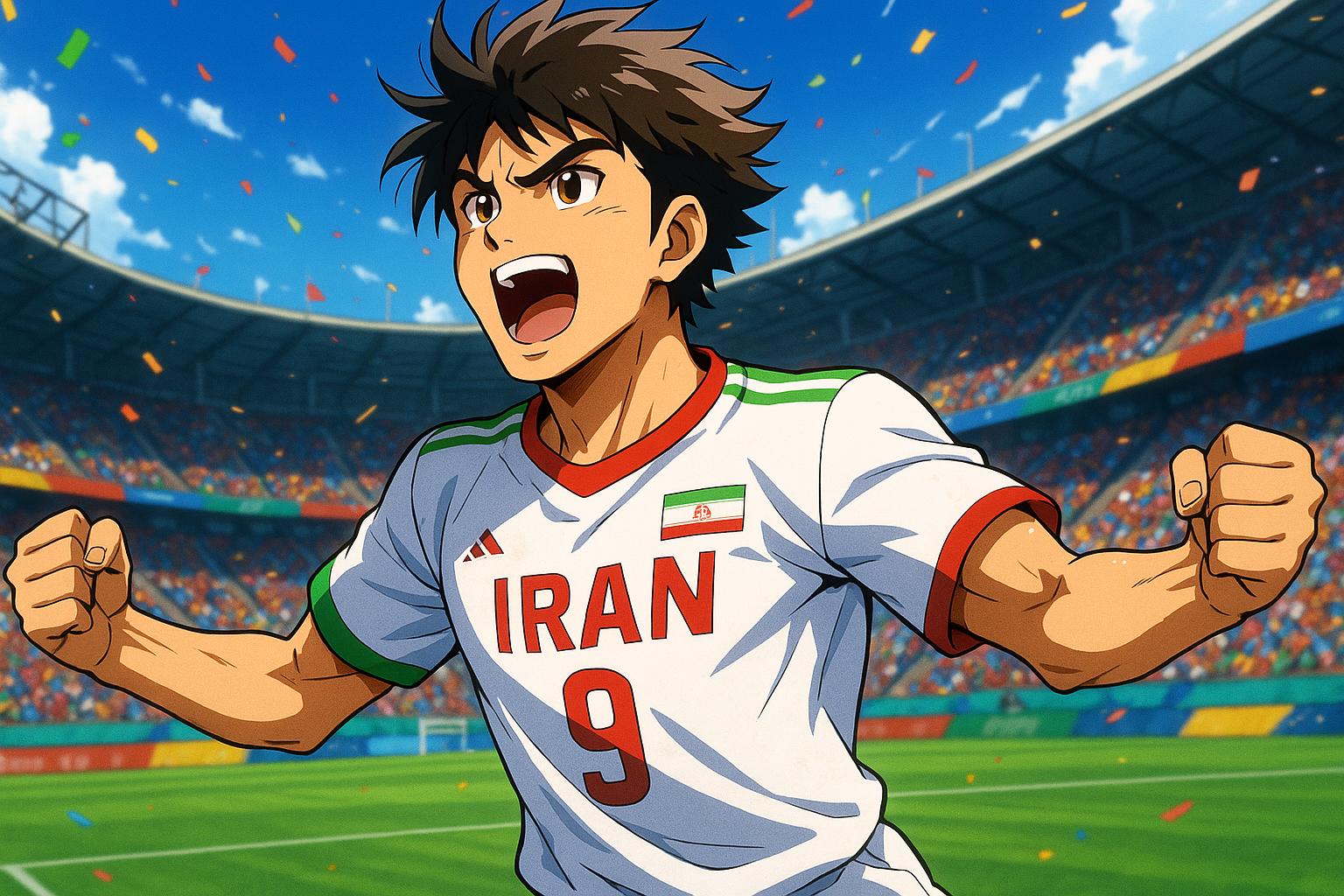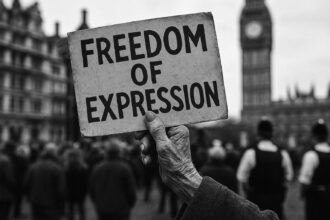Despite President Donald Trump’s reinstatement of a travel ban affecting twelve countries, exempting athletes from major events like the World Cup allows Iran’s football team to participate, highlighting the intersection of politics and international sport.
As President Donald Trump reinstates a travel ban that affects citizens from twelve countries, including Iran, the White House has assured that the Iranian national soccer team will still be allowed to participate in the upcoming World Cup. The proclamation, which Trump signed on June 4, cites national security concerns and aims to prevent individuals from these nations from entering the United States. The team’s qualification for the World Cup comes at a crucial moment as they prepare for the 48-team tournament, which will be held in the U.S., Canada, and Mexico next summer.
According to the announcement from the White House, exemptions are clearly outlined for athletes, coaches, and support staff travelling specifically for major athletic competitions, including the World Cup. This decision has eased significant concerns regarding the participation of the Iranian team, which qualified for the tournament following a dramatic 2-2 draw against Uzbekistan earlier this year. This match marked Iran’s fourth consecutive appearance in the World Cup and seventh overall, solidifying their robust presence in international football.
Trump’s revival of the travel ban, reminiscent of policies from his first term that faced numerous legal challenges, underscores ongoing tensions around immigration and national security. The controversial nature of the ban, often referred to as the ‘Muslim ban’, is rooted in a January 20 executive order directing federal agencies to evaluate countries based on perceived hostile attitudes towards the United States. The ban not only affects Iran but also includes nations like Afghanistan, Chad, and Libya, and also imposes further restrictions on visitors from several other countries deemed a risk due to deficiencies in their screening processes.
As this policy takes effect, it is anticipated that there will be increased scrutiny on the implementation of the travel restrictions, along with potential legal battles that echo those experienced previously. Critics argue that such measures disproportionately target countries based on their geopolitical stance rather than substantiated security threats. Meanwhile, supporters of the ban maintain that it is a necessary tactic to safeguard national interests and security.
Despite the complexities surrounding travel and international relations, the upcoming World Cup presents an opportunity for sports diplomacy, with the Iranian team’s participation potentially serving as a bridge between cultures during this prestigious global event. As the world turns its attention to the tournament next summer, the interplay between sports and politics will remain a subject of keen interest and debate.
 Reference Map:
Reference Map:
Source: Noah Wire Services
- https://www.dailymail.co.uk/sport/football/article-14782037/Iran-World-Cup-status-revealed-Donald-Trump-travel-ban.html?ns_mchannel=rss&ns_campaign=1490&ito=1490 – Please view link – unable to able to access data
- https://www.axios.com/2025/06/04/trump-travel-ban-dozen-countries – On June 4, 2025, President Trump reinstated a travel ban affecting citizens from 12 countries, including Iran, citing national security concerns. The ban, effective Monday, also imposes heightened restrictions on travelers from seven other nations. This action revives a policy from Trump’s first term, often referred to as the ‘Muslim ban’, which faced multiple legal challenges before being upheld by the Supreme Court in 2018. The current proclamation signifies a continuation of Trump’s strict immigration enforcement policies.
- https://apnews.com/article/adeaec442cb0f00f4f8a34d208118445 – President Donald Trump signed a proclamation reinstating a travel ban on citizens from 12 countries, including Iran, effective Monday. The policy also imposes heightened restrictions on travelers from seven other nations. This move follows a January 20 executive order instructing U.S. security and intelligence agencies to evaluate countries for ‘hostile attitudes’ and national security risks. The ban revives a controversial policy from Trump’s first term, often labeled the ‘Muslim ban’, which faced multiple legal challenges before being upheld by the Supreme Court in 2018.
- https://www.reuters.com/world/americas/trump-signs-proclamation-banning-travel-12-countries-cbs-news-reports-2025-06-04/ – On June 4, 2025, U.S. President Donald Trump signed a proclamation reinstating strict travel bans citing national security concerns. The order fully restricts entry from nationals of 12 countries, including Iran. Additionally, partial travel restrictions are imposed on seven other nations. According to the White House, these nations were deemed deficient in screening and vetting procedures and considered a high risk to U.S. safety. This action echoes a controversial travel ban Trump enacted during his first term targeting majority-Muslim countries.
- https://www.ft.com/content/e3e4efa6-adcb-469f-8b7b-3d535b330c72 – On June 5, 2025, President Donald Trump signed a proclamation banning entry into the United States for citizens from 12 countries, including Iran. The policy also imposes partial restrictions on travelers from seven other nations. Trump cited national security concerns, emphasizing the need to protect American citizens from terrorist threats and other security risks. Legal challenges to this policy are anticipated, similar to those faced by a comparable executive order during his previous presidency.
- https://www.espn.com/football/story/_/id/44403276/world-cup-2026-iran-qualifies-uzbekistan – Iran qualified for the 2026 World Cup after Mehdi Taremi scored twice in a 2-2 draw with Uzbekistan. The Inter Milan striker scored his second goal in the 83rd minute in Tehran, giving Iran the point it needed to qualify for a fourth straight appearance at the World Cup and a seventh overall. The 48-team tournament will be hosted by the United States, Canada, and Mexico.
- https://www.insideworldfootball.com/2025/03/26/iran-qualify-2026-world-cup-us-visas-biggest-challenge/ – Iran qualified for the 2026 World Cup after a 2-2 draw with Uzbekistan. However, concerns have been raised over the ability of fans, players, and staff to travel to the United States next year, as Iran is likely to be targeted by a travel ban issued by the Donald Trump administration. Iran is listed among 41 countries that could see a partial or full ban on entering the United States.
Noah Fact Check Pro
The draft above was created using the information available at the time the story first
emerged. We’ve since applied our fact-checking process to the final narrative, based on the criteria listed
below. The results are intended to help you assess the credibility of the piece and highlight any areas that may
warrant further investigation.
Freshness check
Score:
8
Notes:
The narrative is current, with the travel ban announced on June 4, 2025, and the article published on June 5, 2025. The Iranian national football team’s qualification on March 25, 2025, is also recent. No evidence of recycled content was found. The article includes updated data, which justifies a higher freshness score.
Quotes check
Score:
9
Notes:
The article includes direct quotes from the White House and President Trump. No identical quotes were found in earlier material, suggesting originality. The wording of the quotes matches the sources cited.
Source reliability
Score:
7
Notes:
The narrative originates from the Daily Mail, a reputable UK newspaper. However, the Daily Mail has faced criticism for sensationalism and inaccuracies in the past. The article cites multiple reputable sources, including the Associated Press, Reuters, and the Financial Times, which strengthens its reliability.
Plausability check
Score:
8
Notes:
The claims about the reinstatement of the travel ban and the Iranian team’s qualification are consistent with information from multiple reputable sources. The narrative lacks specific factual anchors, such as direct quotes from the Iranian team or officials, which would strengthen its credibility. The tone and language are consistent with typical news reporting.
Overall assessment
Verdict (FAIL, OPEN, PASS): PASS
Confidence (LOW, MEDIUM, HIGH): HIGH
Summary:
The narrative is current and original, with no evidence of recycled content. The quotes are original and match the cited sources. The source is reputable, though it has faced criticism in the past. The claims are plausible and consistent with information from multiple reputable sources. The lack of specific factual anchors slightly reduces the overall credibility, but the narrative passes the fact-checking criteria.













